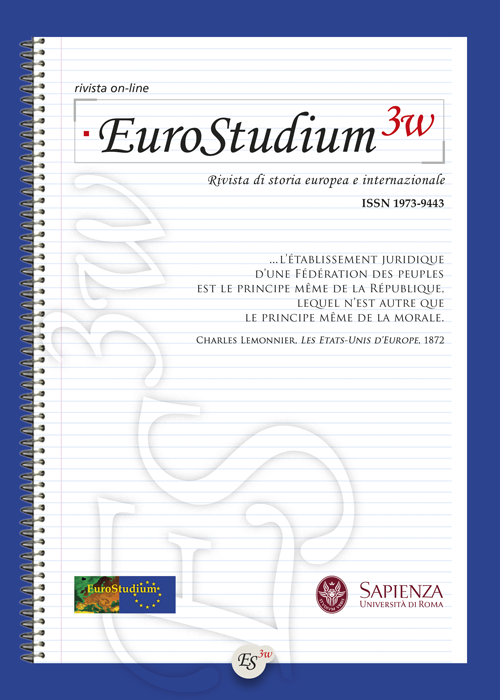Libertà o legge. Il contributo di Melchiorre Cesarotti al dibattito scientifico, estetico e morale del Settecento
Parole chiave:
Melchiorre Cesarotti, Enlightment, European culture and civilization, Science, Method, Truth, Voltaire, Rousseau, Aesthetics, Moral, Theatre, Contract, TheodicyAbstract
The article aims to reconstruct the personality and the thought of Melchiorre Cesarotti (1730-1808) through the analysis of his scientific and moral works. In these texts it is possible to recognize the elements of a doctrine inspired by Rousseau’s philosophy, based on the autonomy of intellect and sentiment. Following this idea Cesarotti developed: 1) an empirical conception of science, for which the "truth" is a production of human intelligence, articulated in a historically determined theory; 2) an intersubjective moral doctrine, constituted of a set of rules produced by the empathic encounter between subjects. While accepting the principles of radical individualism, Cesarotti feared, however, the consequences of this theory. Indeed, 1) scientific empiricism dissolves the reassuring unity of views among scientists, transforming science into an anarchic laboratory of opinions. 2) Ethical subjectivism provokes a radical rejection of the principle of authority, subverts the traditional forms of affective life and, at the same time, of public, social and economic norms. Cesarotti, partly inspired by Voltaire's doctrine, partly remaining well anchored in tradition, elaborated a philosophical proposal capable of inhibiting the extreme humanistic and individualistic instances of the Enlightenment, integrating them into a philosophical vision based on the idea of absolute order. In conclusion, the article shows through the comparative study of scientific and moral works a renewed profile of the writer, traces a direction for a new path of research, which can offer a complete reconstruction of Cesarotti's intellectual and political biography.##submission.downloads##
Pubblicato
2022-03-02
Fascicolo
Sezione
Saggi e ricerche
Licenza
Copyright (c) 2022 Eurostudium3w

Questo lavoro è fornito con la licenza Creative Commons Attribuzione - Non commerciale - Condividi allo stesso modo 4.0 Internazionale.


